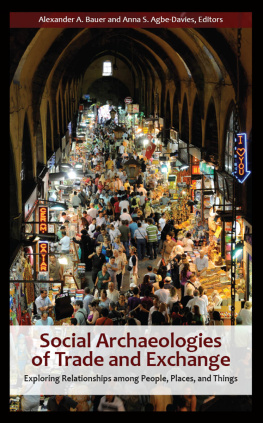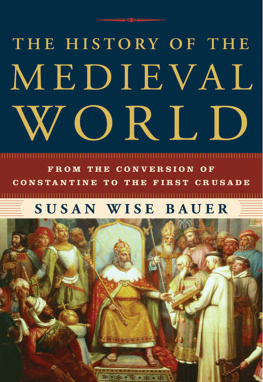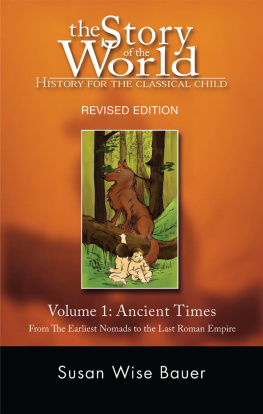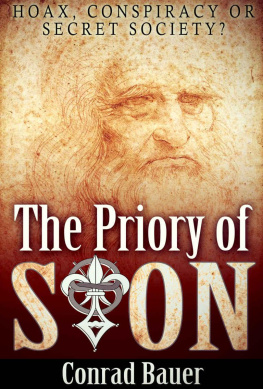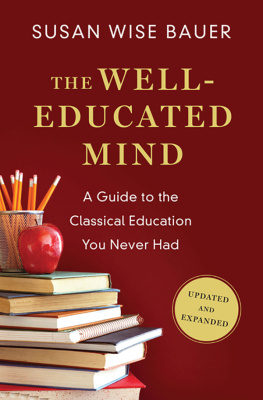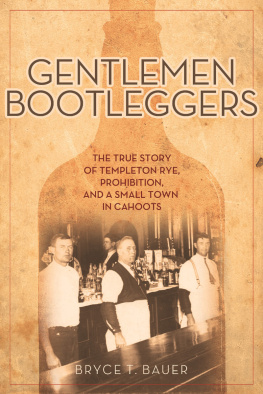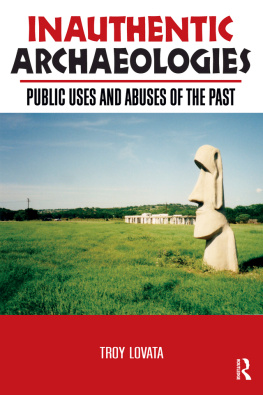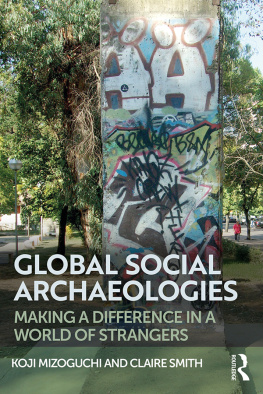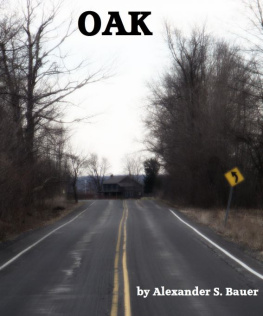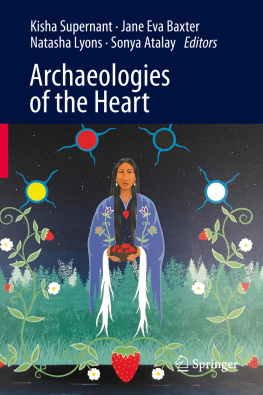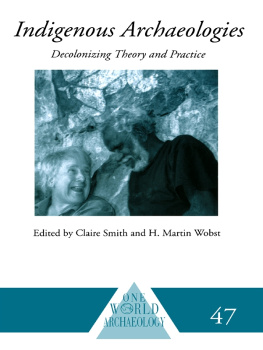Bauer - Social Archaeologies of Trade and Exchange
Here you can read online Bauer - Social Archaeologies of Trade and Exchange full text of the book (entire story) in english for free. Download pdf and epub, get meaning, cover and reviews about this ebook. publisher: Taylor & Francis (CAM), genre: Politics. Description of the work, (preface) as well as reviews are available. Best literature library LitArk.com created for fans of good reading and offers a wide selection of genres:
Romance novel
Science fiction
Adventure
Detective
Science
History
Home and family
Prose
Art
Politics
Computer
Non-fiction
Religion
Business
Children
Humor
Choose a favorite category and find really read worthwhile books. Enjoy immersion in the world of imagination, feel the emotions of the characters or learn something new for yourself, make an fascinating discovery.
- Book:Social Archaeologies of Trade and Exchange
- Author:
- Publisher:Taylor & Francis (CAM)
- Genre:
- Rating:4 / 5
- Favourites:Add to favourites
- Your mark:
- 80
- 1
- 2
- 3
- 4
- 5
Social Archaeologies of Trade and Exchange: summary, description and annotation
We offer to read an annotation, description, summary or preface (depends on what the author of the book "Social Archaeologies of Trade and Exchange" wrote himself). If you haven't found the necessary information about the book — write in the comments, we will try to find it.
Social Archaeologies of Trade and Exchange — read online for free the complete book (whole text) full work
Below is the text of the book, divided by pages. System saving the place of the last page read, allows you to conveniently read the book "Social Archaeologies of Trade and Exchange" online for free, without having to search again every time where you left off. Put a bookmark, and you can go to the page where you finished reading at any time.
Font size:
Interval:
Bookmark:

SOCIAL ARCHAEOLOGIES OF TRADE AND EXCHANGE
SOCIAL ARCHAEOLOGIES OF TRADE AND EXCHANGE
Exploring Relationships among People, Places, and Things
Alexander A. Bauer
Anna S. Agbe-Davies
Editors

First published 2010 by Left Coast Press, Inc.
First paperback edition 2011.
Published 2016 by Routledge
2 Park Square, Milton Park, Abingdon, Oxon OX14 4RN
711 Third Avenue, New York, NY 10017, USA
Routledge is an imprint of the Taylor & Francis Group, an informa business
Copyright 2010 Taylor & Francis
All rights reserved. No part of this book may be reprinted or reproduced or utilised in any form or by any electronic, mechanical, or other means, now known or hereafter invented, including photocopying and recording, or in any information storage or retrieval system, without permission in writing from the publishers.
Notice:
Product or corporate names may be trademarks or registered trademarks, and are used only for identification and explanation without intent to infringe.
Library of Congress Cataloging-in-Publication Data
Social archaeologies of trade and exchange : exploring relationships among people, places, and things / edited by Alexander A. Bauer and Anna S. Agbe-Davies.
p. cm.
Includes bibliographical references and index.
ISBN 978-1-59874-029-5 (hardcover : alk. paper)ISBN 978-1-59874-030-1 (paperback : alk. paper)ISBN 978-1-59874-711-9 (e-ISBN)
1. Social archaeology. 2. CommerceSocial aspects. 3. ExchangeSocial aspects 4. Material cultureSocial aspects. I. Bauer, Alexander A. II. Agbe-Davies, Anna.
CC72.4.S628 2010
930.1dc22
2010006395
Cover design by Jane Burton
Cover photo: The Misir argisi, or Egyptian Bazaar, in Istanbul, August 2009.
Photo by Alexander A. Bauer.
Hardback ISBN 978-1-59874-029-5
Paperback ISBN 978-1-59874-030-1
Contents
Anna S. Agbe-Davies and Alexander A. Bauer
Alexander A. Bauer and Anna S. Agbe-Davies
Marisa Lazzari
Anna S. Agbe-Davies
Kenneth G. Kelly
Susan Sherratt
Laurie A. Wilkie and Paul Farnsworth
Eleanor Conlin Casella
Owen P. Doonan and Alexander A. Bauer
Greg Urban
It might seem that trade and exchange are among the most enduring concepts in archaeological theory. After all, they were central to both the cultural-historical archaeology of the 1940s and 1950s and the processual archaeology of the 1960s and 1970s. Yet, as Alexander Bauer and Anna Agbe-Davies point out, studies of trade and exchange have fallen on hard times in recent years. With some notable exceptions, they have not been central to the agendas of most postprocessual archaeologies. This neglect may be due in part to the early postprocessual critiques of the extreme formalism of the spatial models then in vogue. But methodological difficulties should not obscure the central role of trade in theories of culture change. Indeed, there is every reason to believe that trade can contribute to and expand postprocessual concerns.
This volume marks an important advance in trade and exchange studies. It draws inspiration from its processual antecedents and at the same time engages with new postprocessual theories of agency, identity, meaning, and materiality. Collectively, the chapters point towards a theory of trade with the following three components. First, trade is contextual. The objects of trade can only be understood from within their cultural, ideological, and historical contexts. Second, trade is a communicative activity. It is about not only the movement of things but also what those things signify in terms of persons, places, and meanings. Trade studies must thus look beyond the material in order to explore the social constitution of society. Third, trade cannot be divorced from questions of production and consumption. The former refers to the process of the creation of trade objects, while the latter is the process by which the circulation of objects is temporarily slowed. The biography of the object reveals important information about society, particularly labor relations, power differentials, and ideological understandings.
Trade and exchange thus lie at the heart what has come to be called social archaeology. Social archaeology can be described as the study of the ways in which we express ourselves through the things we make and use, collect and discard, value or take for granted, and seek to be remembered by. It is linked to how we conceptualize the relationships between ourselves and others and between society and history in both past and present contexts. It involves an appreciation of the multiple entailments of our very being-in-the-world. Trade and exchange encompass the physical and cognitive processes and the social and political practices that link together people, places, and things. These new studies of trade are about the relationships that are created more than they are about the things that circulate. These relationships, the objects traded, and the ideas they convey underpin the very motion of culture.
In the end, the essays in this volume cause us to consider culture in a new way. Rather than thinking about culture as a discrete entity associated with a distinct people occupying a specific geographical locality at a particular time, these studies acknowledge the fluidity of culture, its ever-shifting and always negotiated boundaries. More specifically, they draw attention to what Benjamin Lee and Edward LiPuma (2002) call cultures of circulation, the cultural practices that underwrite and propel the process of circulation itself. These essays emphasize how material and immaterial cultural forms traverse social space and in the process build particular interpretive communities with their own internal logics and dynamics. Trade and exchange are back on the agenda!
Robert W. Preucel
University of Pennsylvania
Like the objects of trade discussed in the chapters here, this volume is in many ways a product of social interaction, both predictable and unpredictable, institutional and informal. While we both did our doctoral work at the University of Pennsylvania in the waning years of the processual-post-processual debates, which clearly influenced our thinking, our engagements with the subject of trade took distinctive trajectories, and it was not until encountering each others work some time later that we realized that we had been grappling with parallel issues, if in very different contextsAlex in the Bronze Age Black Sea, Anna in colonial Virginia.
As if to illustrate the ideas about agency, perspective, and meaning in the past that are explored in this volume, we have very different recollections of how our ideas developed and how we came to work together on this project. Alex remembers this conversation taking place at the 2002 Society for American Archaeology (SAA) meeting, where he had just delivered a paper he had co-authored with Owen Doonan that raised the question of where trade studies in archaeology had gone (Owen and Alexs chapter in this volume is a descendant of that paper). Having then stopped to hear a paper that Anna was giving on her research into the pipe trade in Virginia, Alex remembers finding Anna at that meeting and talking over a takeout lunch about the intersections between the papers and the possibility of developing a larger project to reinvigorate theorizing about trade. Anna remembers that she was imposing on the hospitality of Alex and his family on one of many trips to Philadelphia to consult with her advisor about her dissertation research. In the course of discussing the winding paths of our respective projects, we realized our common concerns, especially finding a suitable body of theory for thinking about how the meanings of objects shift from one cultural context to the next and coping with the problem of imports versus locally made copies and the various meanings each might hold for the people who rendered, traded, and used them.
Next pageFont size:
Interval:
Bookmark:
Similar books «Social Archaeologies of Trade and Exchange»
Look at similar books to Social Archaeologies of Trade and Exchange. We have selected literature similar in name and meaning in the hope of providing readers with more options to find new, interesting, not yet read works.
Discussion, reviews of the book Social Archaeologies of Trade and Exchange and just readers' own opinions. Leave your comments, write what you think about the work, its meaning or the main characters. Specify what exactly you liked and what you didn't like, and why you think so.

